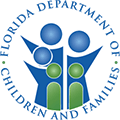What is Marijuana Abuse
Understanding Marijuana Abuse
Marijuana is one of the most popular substances of abuse in the United States. While many people mistakenly believe that marijuana is a “safe” drug, the abuse of this substance can result in negative consequences.
Marijuana produces feelings of relaxation and a sense of detachment, and it can be addictive. Dependence upon marijuana is known clinically as cannabis use disorder. If you become addicted to marijuana, you may be at increased risk for physical, psychological, and social harm.
Thankfully, there is treatment available that can help you overcome an addiction to marijuana.
Statistics
Statistics of Marijuana Abuse
The American Psychiatric Association (APA) reports that marijuana is one of the most commonly abused psychoactive substances in the world. The 12-month prevalence of cannabis use disorder in American adults over age 18 is roughly 1.5%. Statistics indicate that more men than women abuse marijuana, with 2.2% of men abusing it compared to 0.8% of women.
Causes
What are the Causes of Marijuana Abuse
The causes and risk factors connected to a person’s likelihood of abusing marijuana can be explained further in the following:
Genetic: Individuals who possess a family history of substance abuse, including the abuse of marijuana, are at greater risk for abusing marijuana than are those who do not have this type of family history.
Environmental: Certain environmental factors can affect one’s likelihood of abusing marijuana and eventually struggling with cannabis use disorder. The APA states that having a low socioeconomic status, living in an unstable environment, experiencing abuse or neglect, smoking tobacco, or struggling academically can all increase the risk for marijuana abuse. Additionally, associating with others who abuse marijuana can also increase this risk.
Risk Factors:
- Family history of substance abuse and addiction
- Suffering from antisocial personality disorder
- Lacking inhibition
- Suffering from conduct disorder during childhood or adolescence
- Being the victim of abuse and/or neglect
- Having easy access to marijuana
Signs and Symptoms
Learn More About the Signs and Symptoms of Marijuana Abuse
The signs and symptoms that an individual who is abusing marijuana might display can vary, yet commonly include the following symptoms:
Behavioral symptoms:
- Withdrawing from friends and family members
- Being in possession of drug paraphernalia
- Engaging in behaviors that could be deemed risky or reckless
- Unexplained absences from work
- Decline in performance at work
- No longer participating in activities that were once enjoyed
Physical symptoms:
- Impaired motor coordination
- Dry mouth
- Bloodshot eyes
- Increased appetite
Cognitive symptoms:
- Perceptual disturbances
- Impaired judgment
- Experiencing the sensation of time slowing down
Psychosocial symptoms:
- Euphoria
- Irritability
- Agitation
- Decline interest in things that one once found pleasurable
- Anxiety
Effects
Understanding the Effects of Marijuana Abuse
Abusing marijuana can lead to many detriments throughout a person’s life. Both psychosocial and cognitive functioning can be affected, as can one’s physical health and overall wellbeing. Some of these effects can include the following:
- Disturbed social relationships
- Interaction with law enforcement
- Familial strife, including divorce or loss of child custody
- Suffering from an acute episode of psychosis
- Onset of new, or worsening of preexisting, symptoms of mental health disorders
- Cognitive impairment
- Disturbances in one’s ability to perform occupationally, potentially leading to job loss or demotion
- Respiratory illnesses
Withdrawal and Overdose
Learn More About the Effects of Marijuana Withdrawal and Overdose
When individuals who have been abusing marijuana suddenly end their use, a number of withdrawal symptoms can develop. While withdrawing from marijuana likely will not be as painful as withdrawing from other substances like alcohol or heroin, it can still produce distress. Some of these symptoms can include the following:
- Depressed mood
- Chills
- Abdominal pain
- Nervousness
- Restlessness
- Shakiness / tremors
- Decreased appetite
- Sleep difficulties
- Fever
- Sudden and unwarranted anger or aggression
- Anxiety
- Irritability
- Headache
- Sweating
- Weight loss
Co-Occurring Disorders
Marijuana Addiction and Co-Occurring Disorders
Cannabis use disorder often co-occurs with other mental health conditions, including the following:
- Antisocial personality disorder
- Major depressive disorder
- Schizophrenia
- Alcohol use disorder
- Stimulant use disorder
- Other substance use disorders
- Obsessive-compulsive disorder (OCD)
- Paranoid personality disorder
- Bipolar I disorder
- Anxiety disorders











